- On 13 November 1985, the owners of Bæjarútgerður Reykjavíkur (BÚR) and Ísbjörninn signed an agreement on the merger of these two largest fisheries companies in Reykjavík. The new company was named Grandi hf. The assets of the new company were seven trawlers, two freezing plants and fish processing plants, freezer storages and more. Shares were ISK 200 million and assets worth ISK 1.3 billion. Monday, 18 November was the new company’s first day of operation. The first Chairman of the Board was Ragnar Júlíusson, and the CEO was Brynjólfur Bjarnason, who had been appointed CEO of BÚR in 1983. The privatisation took place during the time of Davíð Oddsson, who was then mayor, and the act caused a great deal of political controversy at the time. BÚR and Ísbjörninn had had considerable operational difficulties, and BÚR had in fact been a heavy burden on the city treasury for many years.
Our History
How we became a leader in the fishing industry
1985
Founding of the company, 13 November 1985
1986
The company’s first full year of operation
- 1986 was Grandi’s first full year of operation. From the beginning, the main emphasis has been on value creation with final processing, automation and specialisation as a guiding principle, emphases that have been a constant at the company since.
- The BÚR fish processing plant in Grandagarður was converted into a specialised red perch processing plant. The main product was the traditional 7-pound pack for Russia and h/g red perch for the Japanese market, which was a novelty. Stockfish and salted fish processing at Meistaravellir was ceased completely, and the fish processing plant at Norðurgarður was specialised in cod and saithe processing. Grandi’s catch quotas at that time were mostly in perch and saithe.
- Grand celebrations at Grandi’s one-year anniversary, which ended in a big party in Höfði at the invitation of Mayor Davíð Oddsson for all the company’s employees.
- The total catch of Grandi’s trawlers in the first full year of operation was 24 thousand tonnes.
1987
Emphasis on staff safety and education
- From the beginning, emphasis was placed on personnel matters at Grandi, with ambitions to handle them in the best way possible, such as regarding safety issues, retraining, etc.
- At the turn of the year 1986/87, fish processing courses were held for all employees in Grandi’s land processing plants. The courses were held at the University of Iceland. There were 9 academic courses on everything related to fish processing, such as quality issues and marketing, in addition to courses on communication, physical exertion, safety issues, collective wage agreements and more. On 9 January, around 160 people graduated with the job title “Specialised fish processor”. A committee composed of representatives from ASÍ, Verkamannasambandið and the Ministry of Fisheries worked on the preparation of these courses, which have been launched throughout the country.
- Grandi participates in the establishment of Faxamarkaður, which is the first fish market in Iceland along with the Fish Market in Hafnarfjörður.
- New computerised quality system taken into use.
- The market for fresh whole perch in Germany almost collapsed after a TV show aired about ringworms in fish caught in the North Sea that could cause diseases. No distinction was made between where the fish was caught. For Grandi and other fisheries companies in the southern corner of the country, which fished and processed perch, this was a big blow.
1988
The first freezer trawler and the company changes into a public limited company
- Grandi acquires its first freezer trawler, when the wetfish trawler Snorri Sturluson RE 219 was converted in Poland.
- Hvalur, Venus, Sjóvá and Hampiðjan buy the City of Reykjavík’s share in Grandi hf. A new Board of Directors takes over on 5 October. Árni Vilhjálmsson is the Chairman of the new Board. The sale caused a lot of controversy in the city council.
- It was decided to change Grandi hf. into a public limited company and offer the company’s shares on the national securities markets.
- The wetfish trawler Ásþór is sold to Þorbjörn hf. in Grindavík. Ásþór is on an effort quota, which means that it can catch 1,160 tonnes of cod and 1,700 tonnes of perch, but is free to fish for other species.
- Flowlines and group pay systems are introduced in onshore processing plants.
1989
All 11-year-old primary school students invited for a visit
- Faxamjöl hf. is established by the merger of Lýsi og mjöl hf., which was owned by Lýsi hf., and Síldar og fiskmjölsverksmiðjan hf., which was owned by Grandi hf. The third owner is Hraðfrystistöðin í Reykjavík hf. Grandi is the largest shareholder in the new company.
- Shares in Grandi listed with Hlutabréfamarkaðurinn hf., Hámark.
- The first Grandi Day is celebrated. All 11-year-old students from the city’s primary schools are invited to visit the Norðurgarður fish processing plant to get to know the fishing industry and the processing of seafood. A little fish was being processed, in addition to which an exhibition related to fishing and processing was set up in the corridors and in the cafeteria, and fish balls were served. Preperations for the day were ambitious, and most of the staff were involved in the reception of these young and fun guests.
1990
The company expands and production of cod in retail packaging begins
- Grandi hf.’s shareholders’ meeting approves the merger of Grandi hf. and Hraðfrystistöðin í Reykjavík hf. The wetfish trawlers Viðey ER 6 and Engey RE 1, with catch quotas, are added to Grandi’s fleet upon the merger, as is a fish processing plant at Mýrargata. The merged companies have a quota of about 27 thousand tonnes.
- Production of cod in retail packaging for stores in Italy begins. The product is ready to be cooked, and it marks a turning point in the final processing of Grandi’s seafood products.
- A state-of-the-art production line was bought for weighing and assembling whole perch, which was set up at Grandagarður to increase productivity and reduce excess weight.
- Grandi hf. has six wetfish trawlers and one freezer trawler. The total catch was 28 thousand tonnes that year. There were 2 processing plants in operation, and the total number of employees was about 400 people on land and at sea.
1991
The company is a pioneer in ocean perch fishing
- In response to the sharp reduction in quotas within territorial waters, a new chapter in the company’s history begins, and it becomes a pioneer of Icelandic companies in ocean perch fishing, along with fisheries companies in Hafnarfjörður. The composition of the fleet is altered, the number of freezer trawlers is increased and wetfish vessels are sold.
- The wetfish trawler Hjörleifur is sold.
1992
Grandi’s shares listed on the Iceland Stock Exchange
- Ögri RE 72 is bought by Ögurvík hf. in order to increase the company's ability to sell a larger part of the perch quota fresh on the German market; the trawler Ásgeir RE 60 was traded in the sale. The ship was given the name Akurey.
- The freezer trawler Örfirisey is bought from the Faroe Islands. Örfirisey is one of the most powerful trawlers owned by Icelanders when it arrives in Iceland. Örfirisey is the sister ship of Höfrungur III in Akranes.
- With the increase in the number of freezer trawlers, special processing of perch was stopped at the Grandagarður processing plant that summer and the company’s demersal fish processing was merged in Norðurgarður. The strategy was to further mechanise and increase final processing, which was in line with the company’s strategy the year before. At the same time, the reception of fish was stopped in Bakkaskemma and moved to Norðurgarður, and ice production was also moved from Mýrargata to Norðurgarður.
- Part of the restructuring of Grandi’s operations consisted of diversification, i.e. entering into a proprietary relationship with other companies, both foreign and domestic. Therefore, an agreement was made with the shipping company Friosur in Chile for a multifaceted collaboration and for Grandi to buy a 22% share in the company.
- A Vision Grader is purchased from Marel for fillet pieces as well as weighing to increase flexibility and safety in fillet piece processing.
- Grandi hf.’s shares are listed on the Iceland Stock Exchange on 15 December.
- Clean-up of Grandi’s surroundings in Norðurgarður was started according to the company’s policy that the entire environs of Grandi and Faxamjöl will be as environmentally friendly as possible.
- The fish processing plant in Norðurgarður is clad on the outside to protect it from damage.
1993
Innovation in the fisheries sector and environmental awareness increase
- A new and stately freezer trawler bought from Norway and named Þerney.
- Production begins on fillets and fillet pieces in consumer packaging (1 kg bags) for retail stores in Europe.
- New processing system for freezing capelin is taken into use with good results.
- Transport of bone waste by car and the associated efforts to the smelter Faxamjöl is stopped. Instead, the bone waste is air blown through a pipe into the fishmeal factory.
- Favourable landmark agreement is made with Rafmagnsveitur Reykjavíkur for the purchase of so-called cut-off electricity.
- Grandi participates in the design of robot development in collaboration with Icelandic and European companies. The project is named Robofish and is carried out according to a special research plan.
1994
Record-breaking catch year, quality system implemented and the company expands
- Major improvements made to capelin processing equipment.
- Three new computer-controlled perch filleting machines purchased, which Grandi worked on developing with Baader in Germany.
- Record-breaking catch year in Grandi’s history. The catch was 37 thousand tonnes, despite a quota reduction. The largest part of this is ocean perch fishing.
- Processing of fresh perch fillets begins following a reduction in tariffs in the main trading partners from 18% to 10%. Tariffs are reduced to 5% over the next two years.
- HACCP quality system taken into use in Norðurgarður and freezer trawlers. Special HACCP courses were held for the crews of the freezer trawlers and employees in Norðurgarður.
- Grandi buys 20.23% of shares in Þormóður rammi hf. in Siglufjördur, for a purchase price ISK 108.7 million.
- Friosur in Chile and Emdepes, which is mostly owned by a Japanese company, exchange shares so that they acquire a 15% share in each other. Grandi’s holding in Friosur is 18.7% and 3.33% in Emdepes.
- Grandi buys shares in Bakkavör hf. for ISK 28 million, and Grandi’s holding in the company is 40%.
1995
10-year anniversary year
- Grandi buys 25% of shares in Árnes hf. in Þorlákshöfn for ISK 65 million and 40% of the share capital in Bakkavör hf. in Kópavogur for ISK 28 million.
- The wetfish trawler Engey RE 1 is converted into a freezer trawler in Poland.
- A state-of-the-art weighing and selection system for loose frozen perch fillets and pieces is purchased. The IQF freezer at Grandagarður was installed in Norðurgarður. With these measures, the capacity of IQF freezing was doubled.
- Shares in the shrimp company Pesquera Siglo in Mexico bought in collaboration with Þormóður rammi hf. Grandi’s holding is 22%.
- Grandi's 10th anniversary was celebrated on 17 November in various ways. In the morning, a number of 11-year-old children from primary schools in the capital area came to examine the operation and receive refreshments. A total of 12 thousand school children have come to visit since the first Grandi Day. In the afternoon, there was an anniversary party in the cafeteria at Norðurgarður, and the day ended with a grand annual celebration. The next day, a family day was held for the families of the staff. Grandi’s management decided to commemorate the anniversary by donating ISK two million to SÁÁ’s prevention work.
- Grandi operated five wetfish trawlers and four freezer trawlers. The total catch was 31 thousand tonnes. Grandi had an average of 420 employees and Faxamjöl 22. The total catch of Faxi, Faxamjöl’s ship, was 20 thousand tonnes.
1996
“Fish, yes please”
- The freezer trawler Snorri Sturluson arrived from Spain after radical improvements. The main engine, propulsion system and winches were replaced. The ship was lengthened by 6 metres, and the processing deck was renewed.
- Engey was experimental fishing south of the Atlantic ridge for three weeks, with limited success.
- Grandi and other companies establish a company in the Falkland Islands. The purpose of the company was fishing in the Falkland Islands and in nearby fishing grounds. The freezer trawler Engey was leased to the company and went fishing off the Falkland Islands along with the long-line fishing boat Tjaldur II. Kristján Guðmundsson hf. at Rif was also a founding member.
- Operation of the wetfish trawler Viðey is stopped.
- A capelin sorting station is set up in Bakkaskemma where capelin was sorted during the season and frozen on board the company’s freezer trawlers that were in harbour for the Russian and Japanese markets.
- Asia is Grandi’s largest market area for the first time, followed by Germany.
- The annual Grandi Day is celebrated under the slogan “Fish, yes please”; about 2,000 people visited the company on that occasion. More than 15,000 children have visited the company since the day was first celebrated in 1989. In addition to primary school children, 70 senior citizens from the senior citizens social activities in Gerðuberg visited Grandi.
1997
State-of-the-art fishmeal plant in Marshallhúsið
- Faxamjöl starts using a new and technically advanced fishmeal factory in Örfirisey (Marshallhúsið). Its capacity is 350–400 tonnes per day.
- The use of 90-litre fish boxes on board the company’s wetfish trawlers is discontinued and replaced with 460-litre tanks, which led to better handling of catch and much higher capacity when loading and unloading the vessels.
- Computer systems were replaced during the year following a detailed needs analysis.
- The freezer ship Engey is sold to Þormóður Rammi – Sæberg hf. and was named Kleifaberg, and the wetfish trawler Jón Baldvinsson was sold to Friosur in Chile.
- The property at Mýrargata 26 where Hraðfrystistöðin in Reykjavík was housed is sold.
1998
Renewal of equipment in Norðurgarður and ship improvements
- The wetfish trawler Viðey sold to Sjólaskip in Hafnarfjörður.
- The company’s fish processing plant at Grandagarður is sold. The old BÚR house.
- The freezer trawler Örfirisey undergoes extensive alterations in Poland, where the ship is lengthened by 10 metres. The processing deck was renewed, and an IQF freezer and perch filleting machine was installed on board.
- Perch filleting machines installed on board Snorri Sturluson and Þerney.
- New processing lines, fillet cutting machines and graders from Marel purchased for Norðurgarður. A tub unloading system from Skaginn hf. in Akranes and an ice dosing system from Frost hf. were also installed.
- Faxamjöl hf. buys all shares in Melur hf. from Vinnslustöðin í Vestmannaeyjum. The purchase included the sein fishing boat Kap VE 4 with a 0.5% catch share in capelin. The ship was given the name Faxi RE 9. The purchase also included 400 tonnes of catch share in perch and fishing rights in the Norwegian-Icelandic herring stock.
1999
The company receives the first environmental award from the Federation of Icelandic Fishing Vessel Owners
- Grandi received the first environmental award from the Federation of Icelandic Fishing Vessel Owners.
- Faxamjöl buys all the assets of the bankruptcy estate of Hafnarmjöl in Þorlákshöfn. This is a capelin factory with a capacity of 400 tonnes per day.
2000
Environmental policy established and more than 20,000 11-year-old students have visited Norðurgarður since 1989
- IQF freezer installed on board the freezer trawler Þerney, which already had a perch filleting machine. A perch filleting machine and an IQF freezer had previously been installed on board Örfirisey. These projects were initiated following the Board’s policy of introducing IQF freezing of perch fillets on board the company’s freezer trawlers for further processing on land. This was done with the Japanese market in mind.
- Faxi goes to Poland for radical alterations and improvements. The ship is lengthened by 10 metres, and a new powerful main engine, sludge system and gantry are installed. With these alterations, the vessel has become a powerful trawler specially equipped for blue whiting fishing.
- Grandi sets an environmental policy and aims to promote pollution prevention and ensure respectful handling of the resource. The policy is followed up on by reducing the use of freon, solvents, system oils, etc. Work is done to reduce fuel consumption and emissions, in addition to alterations to vessels so that they can use geothermal water to heat the trawlers when they are ashore.
- Grandi’s 15th anniversary celebrated with a successful celebration in the Kópavogur Music Hall. At the event, 60 employees who have worked for the company since its establishment were given a watch as a token of gratitude.
- The 20,000th student since the beginning was welcomed to Grandi Day. Grandi Day has been celebrated since 1989 where all 11-year-old students from the city’s primary schools are invited to visit the Norðurgarður fish processing plant to get to know the fishing industry and the processing of seafood.
- Grandi receives recognition from the Reykjavík Education Council for Grandi’s contribution to education for Grandi Day.
2001
The crew of Örfirisey rescued when its engines failed in a storm
- The freezer trawler Örfirisey lost its engine in a storm at the mouth of Jökulfjörður. Snorri Sturluson, the company’s freezer trawler, was in the same area and managed at the last minute to get a rope on board and save the ship from drifting up to Grænuhlíð. Previously, the patrol ship Ægir had had to turn away. This was a great rescue effort on the part of the crew of Snorri Sturluson and a great blessing that things did not turn out worse.
- Two of the company’s vessels that were not in operation were sold. That is, Akurey RE 3 and Faxi RE 241.
- All the company’s holdings in Bakkavör Group hf. sold.
- Grandi buys 31% of shares in Stofnfiskur hf., a science and knowledge company in the field of aquaculture.
- Grandi buys the freezer trawler Venus HF 519 with all catch quotas, amounting to about 3,000 cod equivalents, and receives it at the beginning of 2002.
- Grandi sells the freezer vessel Snorri Sturluson to Ísfélag Vestmannaeyjar with catch quotas for perch and ocean perch, amounting to 1,045 cod equivalent tonnes. The sale price was paid with a holding in Ísfélagið.
- Faxi RE 9’s first full year of operation after the alterations in Poland, which have proved to be very successful. Emphasis was placed on blue whiting fishing to gain catch experience before the blue whiting is set a quota.
2002
A new CEO
- Brynjólfur Bjarnason resigns as CEO, having been Grandi’s CEO since the company’s inception. Árni Vilhjálmsson, Chairman of the Board, temporarily takes over as CEO.
- The subsidiary Faxamjöl merges with Grandi.
- Grandi’s financial statements state that the company places the main emphasis on the fishing and processing of perch and saithe.
- Grandi’s holding in Haraldur Böðvarsson is sold to Eimskipafélagið, which made a takeover bid to other shareholders in the company.
- Grandi buys a 24% share in Þorbjörn Fiskanes and increases its share in Eskja, and the share in that company has reached 21.5%. The company’s share in Þormóður Rammi Sæberg hf. and Isla ehf. was sold.
2003
Icelandic lessons and a new IQF freezer in Norðurgarður
- The company sells all shares in Sölumiðstöð Hraðfrystihúsanna hf., Hf. Eimskipafélag Íslands and Fiskmarkaður Íslands.
- Grandi purchases of 70% of the share capital in the fish farming company Salar Islandica, which had salmon farming in Berufjörður and also increases its share in Stofnfiskur and Fiskeldi Eyjafjarðar.
- The harvest festival took place on 1 May, when 108 people from 17 countries who worked in Norðurgarður received certificates for studying work-related Icelandic.
- A new and high-performance IQF freezer was installed in the Norðurgarður freezing plant, as was a flowline with an automatic trimming machine for saithe processing, in addition to which the capacity of the packing machine unit was increased and new input equipment for IQF freezers was purchased.
- A total of 338 people were employed by Grandi. Three freezer trawlers were in operation, two wetfish trawlers and one pelagic vessel, Faxi. The demersal catch during the year was 37 thousand tonnes, and the pelagic catch was 64 thousand tonnes.
- Kristján Þ. Davíðsson is made CEO of the company.
2004
Grandi and Haraldur Böðvarsson merge under the name HB Grandi
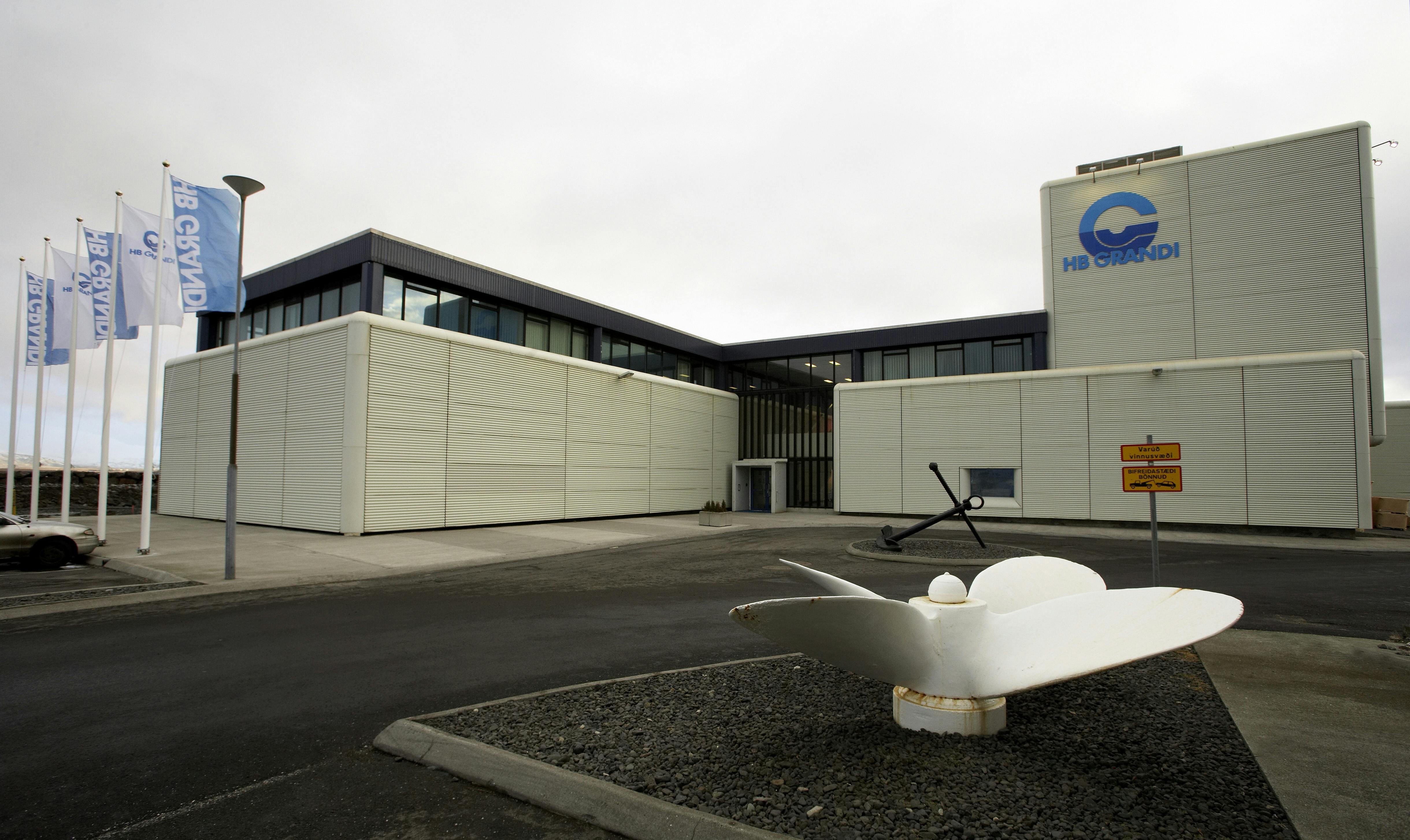
- Grandi buys all the share capital of Haraldur Böðvarsson in Akranes and the companies are merged under the name HB Grandi hf. The merger took effect on 1 January 2004. In addition, HB Grandi’s Board of Directors confirmed a plan for a merger with Tangi hf. in Vopnafjörður and Svanur RE 45 ehf. This merger creates a powerful fisheries company that operates 14 vessels and land processing plants in four locations in the country. The company has 11.5% of the estimated total quota for Iceland. The total number of employees is around 700. Sturlaugur Sturlaugsson is appointed CEO and Kristján Þ. Davíðsson Assistant Director. The company operates 5 freezer trawlers, 4 wetfish trawlers and 5 pelagic vessels. The total demersal catch was 56 thousand tonnes and the pelagic catch was 230 thousand tonnes. The fish processing plant in Reykjavík specialises in perch and saithe processing, while the fish processing plants in Akranes and Vopnafjörður process cod and haddock.
- The company buys a 1.5% share in capelin from Ker hf. when that company sold Festir.
- All shares sold in Ísfélag Vestmannaeyja, Eskja hf., Þorbjörn Fiskanes hf. and Gunnvör hf. Also sold are all shares in the subsidiary Baltic Seafood SIA in Latvia.
- There is an agreement on the purchase of a vessel for fishing and processing of pelagic fish, especially herring and blue whiting. The ship is named Engey RE-1.
- HB Grandi’s marketing department is established for the purpose of strengthening the company’s marketing work and increasing relationships with customers through direct business. Eggert Benedikt Guðmundsson is appointed the company’s first marketing manager.
- Norðurgarður employs 95 people from 21 countries. Emphasis is placed on all foreign employees being able to understand Icelandic. The company has therefore offered Icelandic courses over the years and has received recognition for this part of the HR management.
- Until 2004, most foreign workers came from Asia, but that year, Eastern European countries became members of the European Union and the residents of those countries used their priority for work in EEA countries such as Iceland.
- The wetfish trawler Haraldur Böðvarsson AK 12 ceases operations.
2005
Engey RE-1 becomes the largest vessel in the Icelandic fishing fleet after alterations, and the freezing capacity of the pelagic processing plant in Vopnafjörður is tripled
- Eggert Benedikt Guðmundsson is appointed CEO of HB Grandi and takes over from Sturlaugur Sturlaugsson. Eggert had previously worked as the company’s marketing manager.
- The marketing department takes over the sale of all of the company’s products, which are sold under its own brand, HB Grandi. The company participated for the first time in trade fairs with its own booth at the fisheries fair in Brussels, Belgium and Bremen in Germany.
- HB Grandi’s newest vessel, the pelagic freezer trawler Engey RE-1, arrives from Poland after significant alterations and repairs. This is the largest vessel in the Icelandic fishing fleet. The ship is about 7,000 gross tonnes in size and 105 metres long. The vessel started fishing in June and the fishing and processing went well and met all expectations.
- Equipment for roe processing renewed both in Akranes and in Vopnafjörður.
- The freezing capacity of the pelagic processing plant in Vopnafjörður is tripled, and a new freezing storage and a house for landing and weighing catch are built.
- Fishmeal and fish oil production ceases at HB Grandi’s fishmeal factory in Reykjavík.
2006
Share capital listed on the Exchange’s iSEC market
- Continued extensive development of the pelagic processing plant in Vopnafjörður. Freezing capacity is tripled. A 5,000 tonne freezing storage is built, as is a new house for landing and weighing catch for smelting.
- Changes were made to the pelagic fleet: Svanur was sold and Víkingur and Sunnuberg ceased operations. Guðrún Þorkelsdóttir was bought from Eskja and was named Lundey. Víkingur was kept ready to fish if the capelin season warranted.
- The wetfish trawler Brettingur ceases operations and catch quotas are transferred to the company’s other vessels.
- Only haddock was processed in Vopnafjörður, which was bought on the market when pelagic freezing was not in progress. Perch and saithe are processed in Reykjavík and cod in Akranes.
- Salmon farming in Berufjörður is stopped, but experimental cod farming is continued.
- The company’s freezing storage in Reykjavík is sold.
- HB Grandi’s shares delisted from the Stock Exchange’s Main List and listed on the Stock Exchange’s iSEC market.
2007
Alterations to the processing plant in Vopnafjörður and the company’s remuneration policy approved
- Haddock processing ceased in Vopnafjörður, and processing of salted trimmings from freezer trawlers began during the weeks when pelagic processing is not in progress.
- The pelagic vessel Sunnuberg and the wetfish trawler Brettingur are sold.
- The freezer trawler Engey RE-1 is sold to Samherji.
- Significant improvements are made to the capelin roe processing plant in Vopnafjörður.
- The company’s remuneration policy is approved.
2008
The company’s mackerel fishing increases
- HB Grandi’s demersal fish processing is almost exclusively perch and saithe after the direct fishing for cod was stopped. Possibilities were explored to set up a fish processing plant on a new landfill at Akranes Harbour and have all of the company’s demersal fish processing there in one building. The conclusion was that there would be no such transfer in the near future, and therefore, it was decided to combine the company’s demersal fish processing in the Norðurgarður fish processing plant and have minimal processing in Akranes, where there was a small core of employees who could also process capelin during the season.
- A new high-performance IQF freezer from Skaginn is installed in the fish processing plant in Akranes, as well as brine injection and skin packing machines for the production of IQF frozen saithe fillets for Brazil.
- Construction begins on a new fishmeal factory in Vopnafjörður.
- The company’s mackerel catch increases from 2,000 tonnes in 2007 to 19,000 tonnes in 2008 and will prove to be a significant windfall.
- The third trawl winch is installed on board Örfirisey.
- Installation begins of telecommunication equipment in vessels that connects them to the company and the outside world. The aim is to complete the work in the next year.
- The company participates in the preparation of the certification of responsible and sustainable fishing by Icelanders and the creation of a logo which refers to the Icelandic origin of the products and to responsible fishing.
- The company publishes its financial statement in euros for the first time.
- HB Grandi’s fleet consists of 5 freezer trawlers, 3 wetfish trawlers and 4 pelagic fishing vessels. The vessels’ catch was 47 thousand tonnes of demersal fish and 126 thousand tonnes of pelagic fish. The company had an average of 607 employees.
2009
Capelin roe processing simplified with the installation of drying belts
- Experiments began with pearlside fishing off the south coast for smelting, and a significant amount was caught.
- Drying belts for capelin roe installed in Akranes and Vopnafjörður, which were developed in collaboration with Skaginn hf. and should simplify capelin roe processing.
2010
New fishmeal factory put into operation in Vopnafjörður that runs on electricity – an innovation in Iceland!
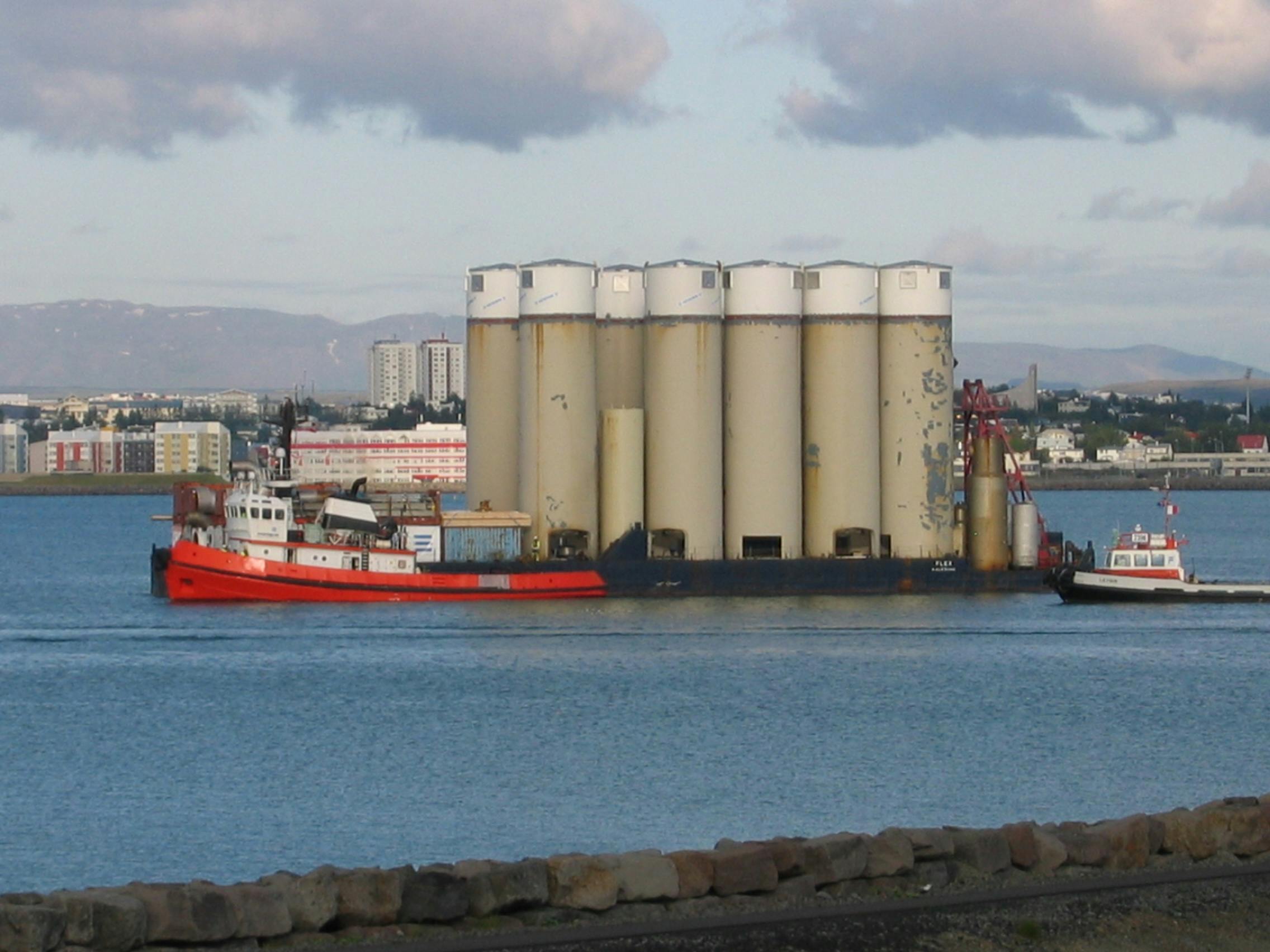
- New fishmeal factory put into operation in Vopnafjörður that runs on electricity – a first in Iceland! A new electrode boiler was introduced at the same time, and domestic electricity was used to power the factory's machinery. It replaced the heavy fuel oil that had been used until now. A new harbour crane was also installed at the factory. Ten meal tanks, which were part of HB Grandi’s fishmeal factory in Reykjavík, were raised by 4 metres and moved to Vopnafjörður. As a result, the meal will be in a closed system and the use of meal bags will be discontinued. Fishmeal and fish oil production ceases at HB Grandi’s fishmeal factory in Reykjavík at the beginning of 2005, when capelin was smelted in the factory. The company now operates two fishmeal factories in Akranes and Vopnafjörður.
- Significant improvements made to wastewater issues from the pelagic processing plant in Vopnafjörður.
- Major improvements made to the pelagic freezing plant in Vopnafjörður with regard to mackerel processing. Among other things, a powerful ice doser system was installed.
- International food standard (IFS) international food certification system adopted in Vopnafjörður. With this, HB Grandi has adopted a harmonised quality management system in its land processing plants.
- New state-of-the-art processing line from Marel installed in Norðurgarður. A reception was held at the Víkin Maritime Museum in Grandagarður to celebrate the good performance of the land processing and to celebrate the graduation of 32 employees, from a total of 9 countries, who have participated in the courses held by the processing plant’s Vocational Training Committee.
- A milestone was reached in Icelandic fisheries history when Icelanders’ fishing for cod within the Icelandic fisheries jurisdiction received the international IRF certification that the fishing is in accordance with the strictest requirements for responsible fisheries management, sustainable utilisation and good management of marine resources.
2011
“Outstanding Icelandic fisheries company”
- New and powerful blast freezer taken into use in the pelagic freezer plant in Vopnafjörður, mainly for freezing mackerel.
- Demersal fish processing completely ceased in Vopnafjörður as a result of significantly increased activities in pelagic processing.
- Seawater cooling system installed on board Faxi RE.
- The Icelandic Fisheries Award was awarded for the fifth time on the evening of the first day of the Icelandic Fisheries Exhibition 2011. Among the winners this time was HB Grandi, which, in the opinion of the jury, deserved the recognition “outstanding Icelandic fisheries company.”
2012
New automatic pinbone removal machine put into operation, the first of its kind in the world; the company receives the Akranes Municipality Environment Award for the most beautiful company plot in the municipality
- Eggert Benedikt Guðmundsson resigns as CEO of HB Grandi, and Vilhjálmur Vilhjálmsson, who previously headed the company’s pelagic department, takes over.
- New automatic pinbone removal machine for perch put into operation in the demarsal fish processing plant in Norðurgarður. The machine is the first of its kind in the world and was designed by Valka in collaboration with HB Grandi’s staff. Pinbone removal machines for cod and saithe were designed on the basis of this machine.
- Extensive alterations and improvements to the processing, freezer and cooling equipment on the freezer trawler Örfirisey, including the replacement of the freezer system. Freon replaced by ammonia.
- Renewal of filleting machines and freezing capacity increased in the pelagic freezing plant in Vopnafjörður. The aim is to double production capacity.
- HB Grandi receives the Akranes Municipality Environment Award 2012 for the most beautiful company plot in the municipality.
2013
The company is awarded the President of Iceland’s Export Award New freezer storage and the outdoor art installation “Þúfa” inaugurated
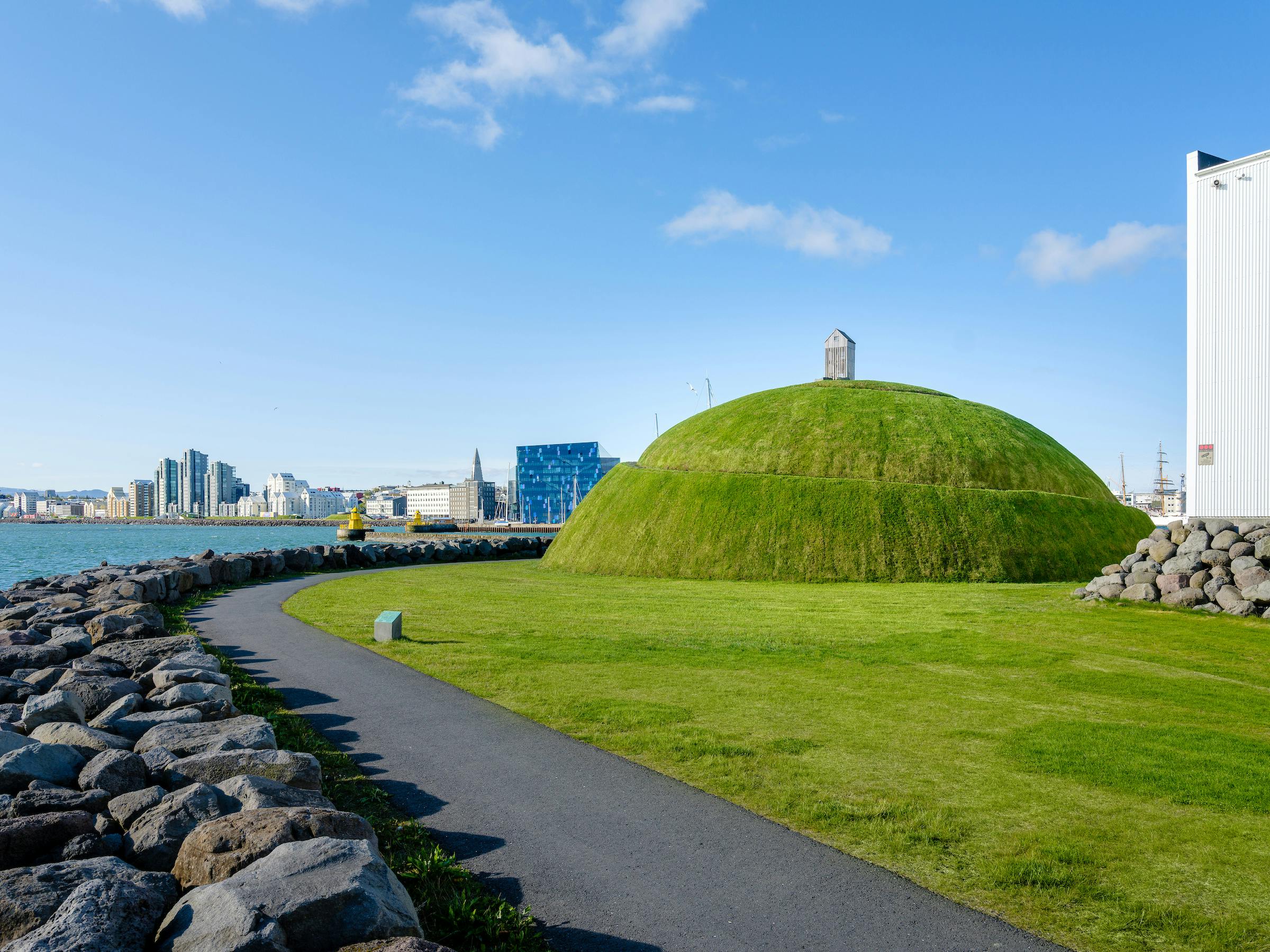
- On 5 March, Professor Árni Vilhjálmsson, Chairman of the Board of HB Grandi and Grandi since 1980, passed away. Kristján Loftsson takes over as Chairman of the Board.
- The President of Iceland, Ólafur Ragnar Grímsson, presented the company with the Icelandic President’s Export Award at a formal ceremony where the company’s staff were invited to Bessastaðir.
- New freezer storage at the fish processing plant Norðurgarður inaugurated. Following an idea competition, the freezer storage was renamed Ísbjörninn, which is a reference to the past, to Ísbjörninn in Reykjavík, which was in the fishing and fish processing industry at the time and is one of HB Grandi's predecessors. President Ólafur Ragnar Grímsson inaugurated the freezer storage.
- HB Grandi’s operation unit in Vopnafjörður was awarded the “Green Branch” award by the recycling company Hringrás. The award is given to companies that are considered to be role models in environmental matters.
- A new fresh-fish packaging line is purchased for the freezer storage in Reykjavík and a pinbone removal machine for cod in Akranes.
- Agreement on the construction of two vessels for fishing for pelagic fish with the Celiktrans shipyard in Turkey. The vessels will be delivered in 2015.
- HB Grandi buys all shares in Vignir G. Jónsson in Akranes. Vignir G. Jónsson specialises in the final processing of roe and is a large buyer of capelin roe from HB Grandi and the largest buyer of lumpfish and cod roe in the country.
- Helga María AK arrives in Iceland from Gdansk in Poland, where this former HB Grandi freezer trawler was converted into a wetfish trawler. A new processing deck from Skaginn 3X will be installed on board the ship.
- HB Grandi acquires Laugafiskur ehf. in Akranes. Laugafiskur is an established company in the field of drying fish products for the Nigerian market.
- The artwork Þúfa by the artist Ólöf Nordal, which stands at the western entrance to Reykjavík Harbour, opposite Harpa, is inaugurated. The work is the result of a competition organised by HB Grandi in collaboration with the Association of Icelandic Visual Artists (SÍM) and Faxaflóahafnir in connection with the construction of Ísbjörninn freezer storage.
2014
The company is listed on the Stock Exchange’s Main List and becomes a member of Festa, a knowledge centre for companies on social responsibility, and a founding member of Hafið, a centre of excellence for sustainable utilisation and protection of the sea
- The company is listed on the Main List of the Nasdaq OMX Iceland Stock Exchange.
- HB Grandi hf. becomes a member of Festa, a knowledge centre for companies on social responsibility. The company believes that there will be an increased emphasis in the coming years on social responsibility. It has been the company’s ambition that all activities reflect responsibility towards the environment and the community in which it operates.
- The company becomes a founding member of Hafið, which is a centre of excellence for sustainable utilisation and protection of the sea.
- HB Grandi buys all shares in Norðanfiskur in Akranes, which specialises in the processing of seafood products in consumer packaging for the domestic market.
- HB Grandi sells its share in Stofnfiskur.
- New 500 m2 extension on the second floor of Norðurgarður taken into use for the marketing offices and the demersal fish department.
- 200 m2 product house, adjacent to the fish processing plant in Reykjavík, taken into use.
- New processing line for products generated by HB Grandi's roundfish processing plant taken into use at the company's fishmeal factory in Akranes. The new production line uses steam from an electrode boiler instead of an oil-fired steam boiler.
- Construction begins on the expansion of the fishmeal factory in Vopnafjörður. The capacity increases from 850 tonnes of raw material per day to 1,150 tonnes.
- HB Grandi participates for the tenth time in the Fisheries Exhibition in Brussels.
- A portioning machine from Marel installed in the demersal fish processing plant in Akranes. With the machine, it is possible to shape block pieces and mince materials into different sizes and shapes at the request of buyers.
- Agreement made with the Turkish shipyard Celiktrans Deniz Insaat Ltd. on the construction of three wetfish trawlers.
- The fishing vessel Víkingur AK 100 to Grenaa in Denmark. It has a long and remarkable career in Icelandic fisheries history, with a catch of around 970 thousand tonnes since it arrived in Iceland in 1960. Of this, about 46 thousand tonnes were of roundfish.
- Environmental recognition of Faxaflóahafnir sf. for the year 2014, Fjörusteinninn, was awarded to HB Grandi.
- The company receives the City of Reykjavík’s beauty recognition for the year 2014 for the renovation of the old factory building at Grandagarður 20.
- In connection with the Icelandic Fisheries Exhibition, HB Grandi received the “Outstanding Icelandic Processor” award as the fish processing company of the year.
2015
“Cleaner Value Chain of the Fisheries Sector” – the company aims to reduce greenhouse gas emissions by at least 40% to sea and land by 2030
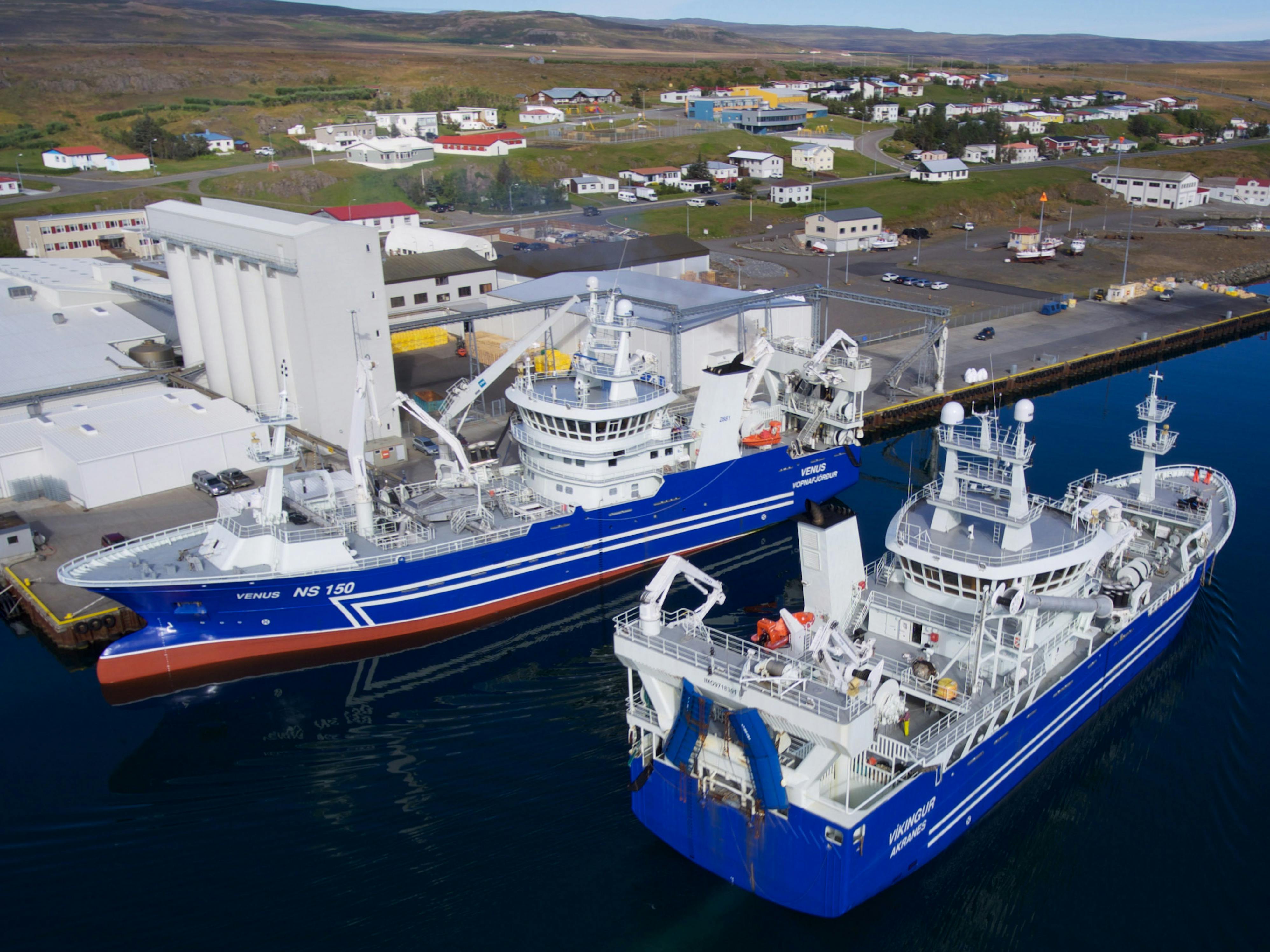
- HB Grandi sells the pelagic vessels Faxi RE and Ingunn AK, together with 0.67% of the authorisations for fishing for capelin and fishing gear for trawling to Vinnslustöðin í Vestmannaeyjum.
- The freezer trawler Júní, formerly named Venus HF 519 and built in Spain in 1973, was sold to the Greenlandic fisheries company Enoksen Seafood AS.
- HB Grandi hf. supports the climate declaration of Festa, a society for social responsibility, and the City of Reykjavík, along with 104 other Icelandic companies in connection with the Paris Conference in December 2015. Subsequently, the company launched a project under the title: The Cleaner Value Chain of the Fisheries Sector. The project covers the company’s entire value chain and is intended to reduce greenhouse gas emissions in a targeted manner by at least 40% from operations at sea and on land by the year 2030.
- Two new and magnificent pelagic vessels arrive in Iceland from Turkey and are named Venus and Víkingur. A reception ceremony for Venus was held in Vopnafjörður and for Víkingur in Akranes.
- New workshop, freezer room and packaging storage with a total size of 1,300 m2 is taken into use at the Norðurgarður processing plant.
- A new waste sorting station named Svanurinn was formally opened at HB Grandi’s headquarters in Örfirisey. All waste generated on board ships and factories on land goes to the sorting station.
- Cardiac defibrillators are installed at all HB Grandi locations, and employees at the relevant locations are trained in their use.
- HB Grandi purchases 13 plots and plot shares on Breiðin in Akranes by the company’s offices there.
- HB Grandi, along with 103 other Icelandic companies and public bodies, signed a declaration on climate issue goals on 16 November 2015 in Höfði. The declaration was delivered in connection with the UN Climate Conference held in Paris in December 2015. The City of Reykjavík and Festa, the Icelandic Centre for Corporate Social Responsibility, have supervised the companies’ declaration.
- Work begins on a large-scale environmental project under the heading “Cleaner Value Chain of the Fisheries Sector” (CVFS). The aim is for all environmental information concerning the company’s operations to be streamed digitally from the place of origin, whether from sea or land, to a specially designed environmental database. The purpose is to systematically record the environmental aspects of the company’s operations to gain a better view of the status in real time and an accurate overview of the development of the issues so we can see where we can make improvements.
2016
The Marshall House is leased for the visual arts activities and the company sponsors the Global Sustainable Seafood Initiative (GSSI)
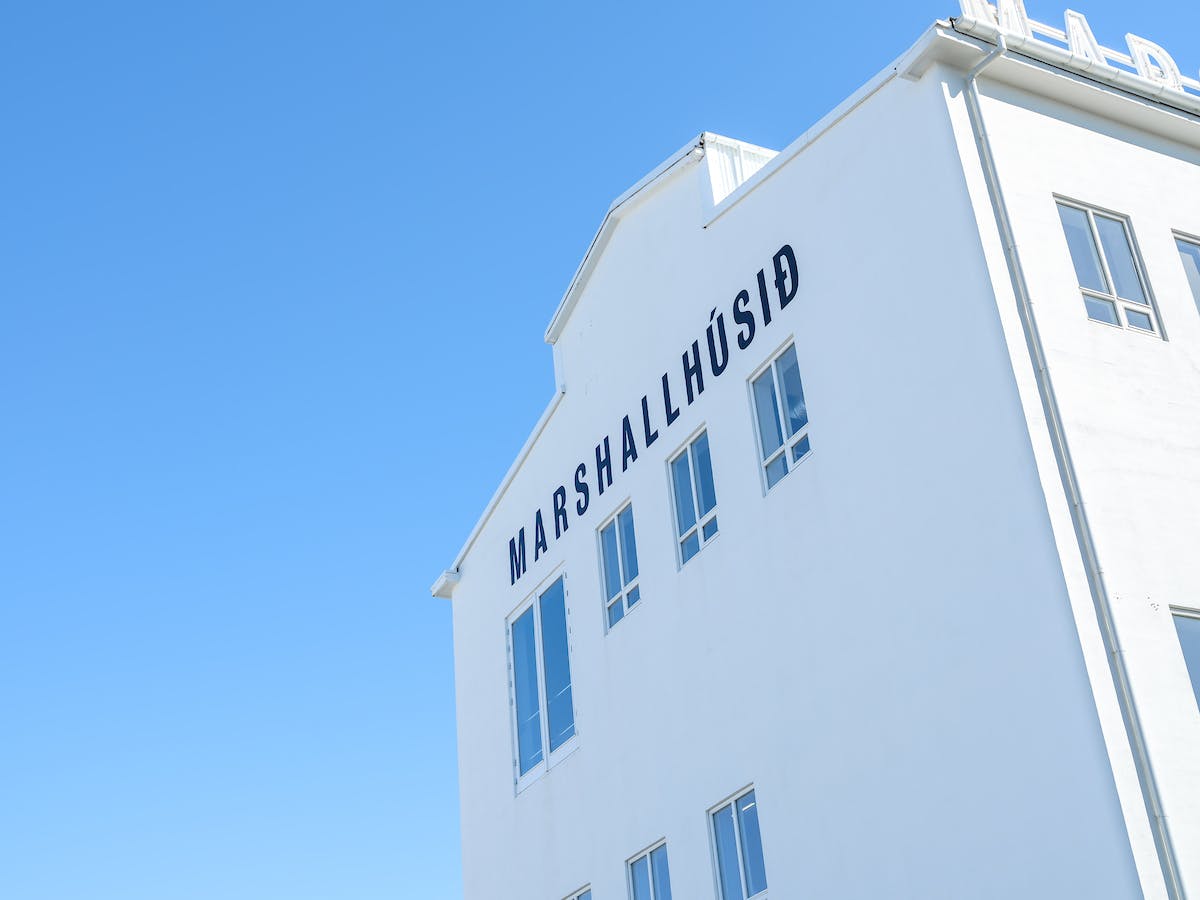
- Renovations of the Marshall building begun and an agreement made with the City of Reykjavík to secure the lease for the project. The building will house the Living Art Museum and the artist-run gallery Kling og Bang. There will also be a studio and exhibition space for the artist Ólafur Elíasson. On the ground floor is a restaurant.
- HB Grandi purchased catch quotas for roundfish corresponding to almost 1,600 cod equivalent tonnes from Hafnarnes VER, Þorlákshöfn.
- HB Grandi donates ISK 5 million in emergency fundraising due to the disasters that ocurred in Nigeria and neighbouring countries.
- HB Grandi and five other companies in the field of seafood become sponsors of the Global Sustainable Seafood Initiative (GSSI). The object of the operation of GSSI is to increase transparency in the certification of sustainability in the fisheries and aquaculture sectors in order to facilitate comparisons and strengthen trust, thus promoting informed choices in the trading of certified seafood products.
2017
Fleet renewed, raw material cooler expanded and waste sorting station opened in Akranes
- Engey, the first of three freshwater trawlers built in Turkey, went fishing after a computer-controlled hold system and processing deck from Skaginn in Akranes were installed on board. The fish is cooled below 0°C and maintained at that temperature in the hold until off-loading. No ice is used, which is a big change. Akurey was delivered in the middle of the year and Viðey in December.
- Agreement made on the construction of a new freezer trawler, which should be ready by mid-2019. The ship is designed by Rolls Royce in Norway and built in Spain and will be one of the most advanced in the Icelandic fleet.
- Following the renewal of the fleet, the pelagic vessel Lundey NS was sold to Norway, the wetfish trawler Ásbjörn was sold to Iraq, Otto N. Þorláksson to Ísfélag Vestmanneyja and the freezer trawler Þerney to South Africa.
- An improved and expanded raw material cooler at the Norðurgarður processing plant is taken into use, as is a new main entrance.
- Processing begins in a renovated, state-of-the-art demersal fish processing plant in Vopnafjörður in the old freezing plant. The prospects for capelin fishing in the coming years are not good, and therefore, work was being created for employees during the time that the capelin season would have lasted.
- Planned construction for a fish drying plant in Akranes are put on ice. HB Grandi stopped drying fish in Akranes and bought a share in Háteigur ehf. which operates a fish drying plant in Reykjanes. Following the acquisition, HB Grandi owns a one-third share in the company against Skinney Þinganes hf. and Nesfiskur. The renewal of the company’s fish drying plant in Reykjanes will be started.
- HB Grandi’s groundfish processing plant in Akranes is closed and the operation merged with the processing plant in Reykjavík. Employees are offered jobs at the companies other operating units in Akranes and Reykjavík.
- HB Grandi’s new waste sorting station in Akranes is opened and named Kistan, which in the same way as the waste sorting stations in Vopnafjörður and Reykjavík, is intended to collect waste generated by the company’s operations at sea and on land. The aim is to significantly reduce landfill waste and increase recycling rates.
- HB Grandi enters into an agreement with Valka ehf. for the purchase of a water-jet trimming machine and an automatic product sorter that is specially designed for perch processing. “Very good experience has been gained with the first water-jet trimming machine that started as a development project between Valka ehf and HB Grandi about 8 years ago.”
- The decision was made during the middle of the year to discontinue using heavy fuel oil for the company’s vessels.
- Online versions of oil logs, ozone logs and fuel logs were designed and adopted by the company’s vessels.
- Þúfa receives the beauty recognition from the City of Reykjavík.
- Marshallhúsið wins the Icelandic Design Award.
- HB Grandi receives the recognition from the City of Reykjavík and Festa.
- HB Grandi hf. sells Ísfiskur hf. its roundfish processing plant at Bárugata 8-10 in Akranes. Ísfiskur has had a fish processing plant in Kópavogur but moves all its operations to Akranes.
- HB Grandi enters into a purchase agreement for the purchase of all shares in Blámar ehf. Blámar has specialised in the export of fish products in consumer packaging and the acquisition is part of strengthening the marketing efforts of HB Grandi’s subsidiaries in Akranes, Norðanfiskur and Vignir G. Jónsson.
- HB Grandi is involved in building a factory that will produce collagen from cod skin along with Samherji, Vísir and Þorbjörn who will have an equal share in the company together with the Spanish company Junca Gelatines. The Icelandic companies will acquire an equal share of almost 90% in total. HB Grandi’s share capital contribution will be around ISK 140 million.
2018
Packing station and quay renewed and ships enabled to connect to electricity and district heating, in addition to which the company’s first sustainability report is published
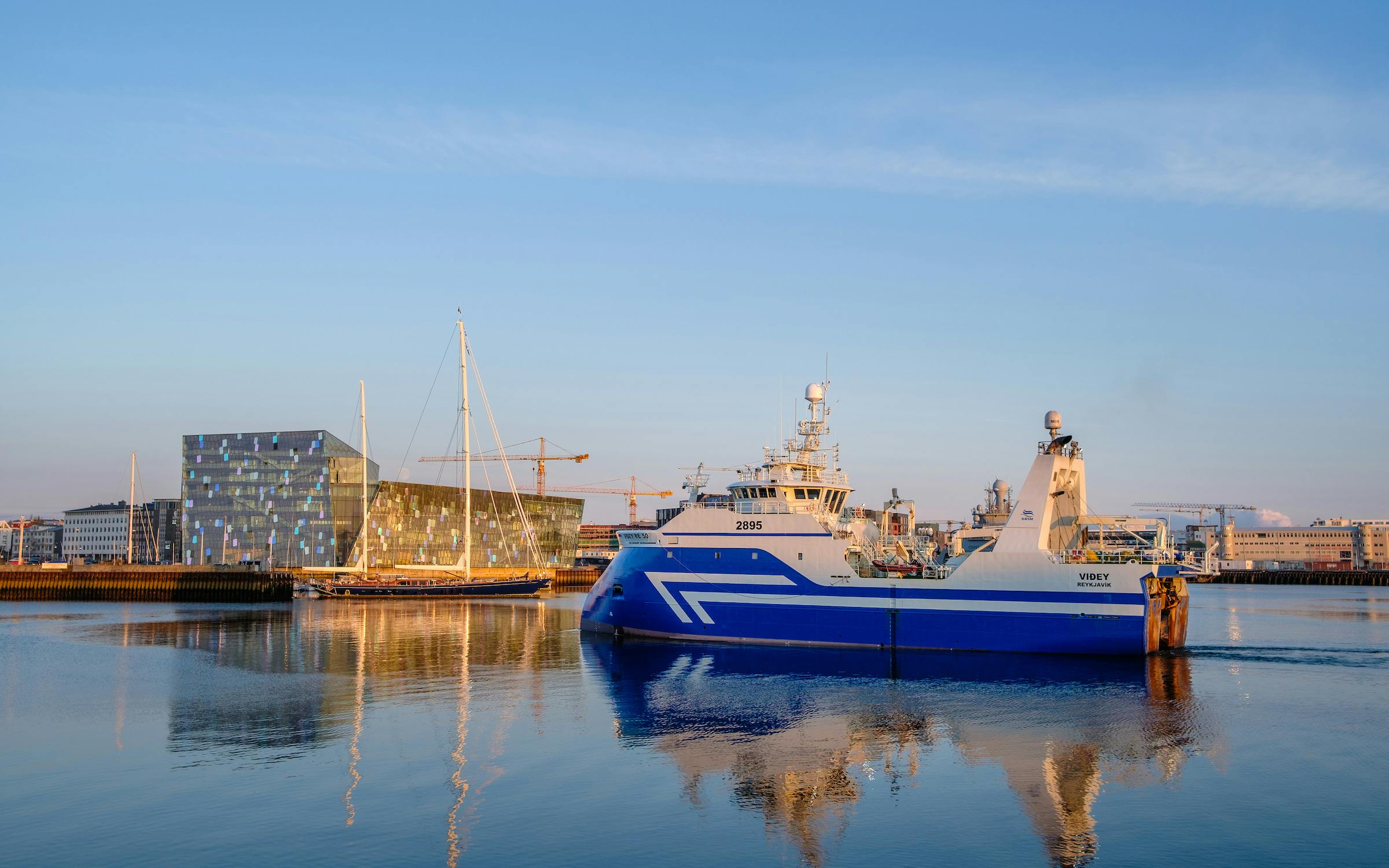
- The fisheries company Brim hf. enters into an agreement for the purchase of all Vogun hf.’s and Fiskveiðihlutafélag Venus hf.’s shares in HB Grandi hf. With this agreement, Brim hf.’s holding becomes 34.1% and is thus the largest shareholder in HB Grandi hf. Vilhjálmur Vilhjálmsson resigns and Guðmundur Kristjánsson takes over as CEO. Magnús Gústafsson takes over as Chairman of the Board from Kristján Loftsson.
- HB Grandi publishes its first sustainability report for 2017, in parallel with the annual report. The company is also the first fisheries company in Iceland to publish a sustainability report.
- HB Grandi was named outstanding organisation by Creditinfo in 2018. HB Grandi has been on this list since 2010.
- Packaging station for frozen products completely renovated with new tools and equipment and moved from the freezer plant to the anteroom of Ísbjörnins’s freezer storage.
- The quay at Norðurgarður taken into use after being widened, which greatly improves off-loading facilities. The quay was previously an old wooden pier. The project is carried out by Faxaflóahafnir.
- Powerful land connections were installed in the new quay. This means that the company’s wetfish vessels can connect to both water and heating utilities when in port.
- Smart containers and smart scales had been installed in all HB Grandi sorting stations by the beginning of the year.
- Deris, an affiliate of HB Grandi’s aquaculture company Salmones Friosur SA, which operates salmon farms in Chile, in which HB Grandi has a stake, is sold.
- Agreement on the purchase of all shares in the shipping company Ögurvík by Brim hf. Ögurvík operates Vigri RE 71, a 2,157-tonne freezer trawler built in 1992. The company’s catch quotas for the fishing year that began on 1 September 2018 are 7,680 tonnes of demersal fish and 1,663 tonnes of mackerel based on the allocation in 2018.
- The company’s demersal fish processing in Vopnafjörður is ceased and merged with the processing plant in Reykjavík.
- HB Grandi and Íslensk orkumiðlun ehf. sign an agreement on electricity purchases which is to enter into effect on 1 January 2019.
- Some experience has now been gained in the use of the new wetfish trawlers. The vessels and their equipment have met expectations, and with the arrival of these new vessels, the company has taken a big leap into the future.
2019
The company’s name is changed to Brim, which receives the SA Environmental Award at the end of the year
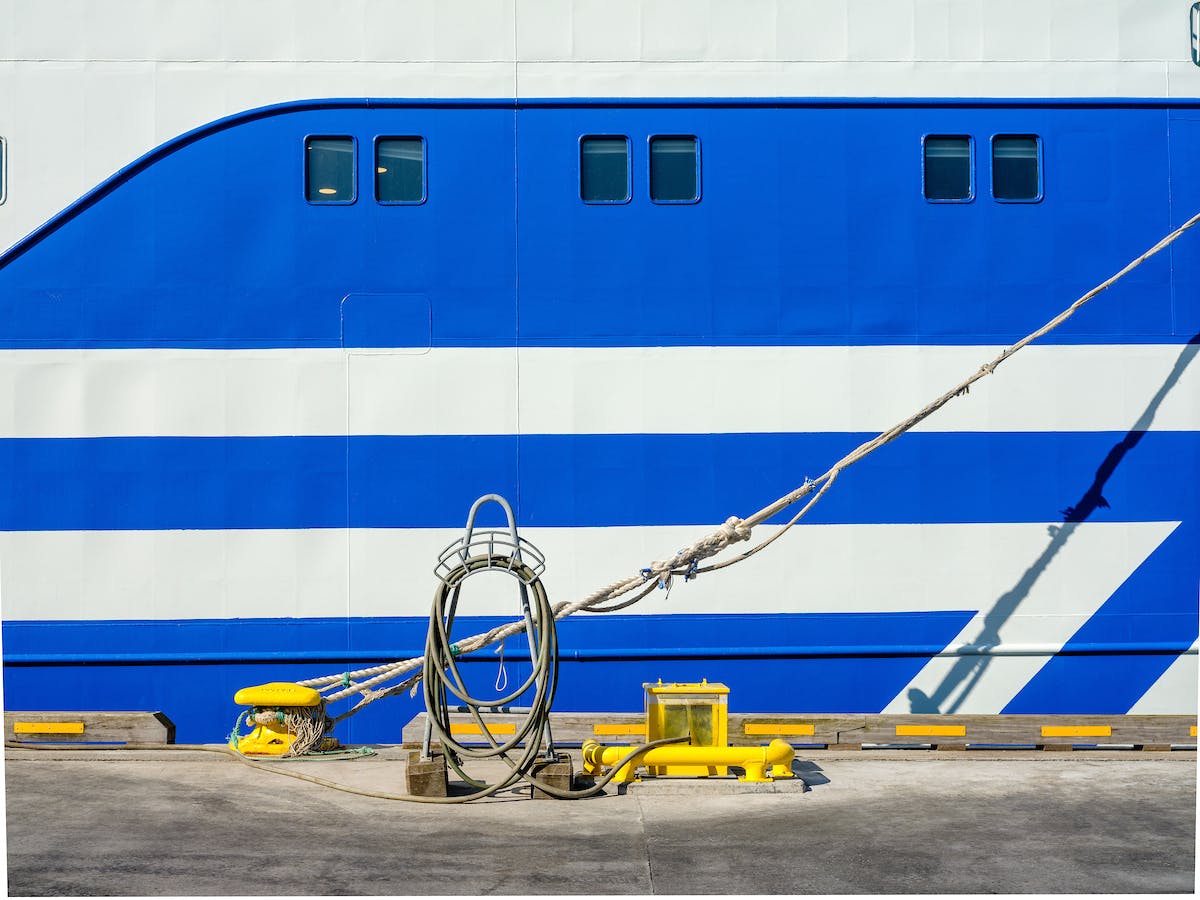
- The company’s name is changed from HB Grandi to Brim.
- Kristján Þ. Davíðsson takes over from Magnús Gústafsson as Chairman of the Board.
- Brim is awarded the SA Environmental Award in 2019.
- The company purchased all the shares in the sales companies Icelandic Japan KK, Icelandic Hong Kong Ltd. and Icelandic China Trading Co. Ltd. from Útgerðarfélag Reykjavíkur hf., as well as the service company Seafood Services ehf. á Íslandi, which is connected to the aforementioned companies.
- Brim hf. enters into an agreement for the purchase of two fisheries companies. One is Kambur ehf., which operates fishing vessels and a processing plant in Hafnarfjörður, and the other is Grábók ehf., which is also based in Hafnarfjörður. Grunnur ehf., a subsidiary of the fish processing plant Kambur, operates the hook-and-line boat Kristján HF 100.
- The company buys the vessel repair yard Gjörvi.
- Engey RE-1 is sold to Murmansk Trawl Fleet in Russia.
- At the beginning of the year, improvements were made to the company’s fishmeal factory in Vopnafjörður, where the factory’s distillation equipment was renewed.
- A vacuum packaging machine was purchased, and freezer storages were increased from 4 to 7. As a result, productivity rose to 120 tonnes per 24 hours in Vopnafjörður.
- The icefish trawler Helga María, together with an 11-man crew, is leased to Grønlands Naturinstitut. The ship will be there for marine research in the waters off Greenland for 3 months during the summer.
- Brim was granted equal pay certification in the spring of 2019 and simultaniously permission to use the equal pay label.
- Brim became one of the sponsors of the Festival of the Sea, along with Faxaflóahafnir and Sjómannadagsráð. The Festival is held in connection with the Seamen’s Day during the first weekend in June each year.
2020
Demersal fish processing plant in Norðurgarður is renewed, an agreement is signed that all plastic generated will be recycled in Iceland and the social policy of Fisheries Iceland is signed
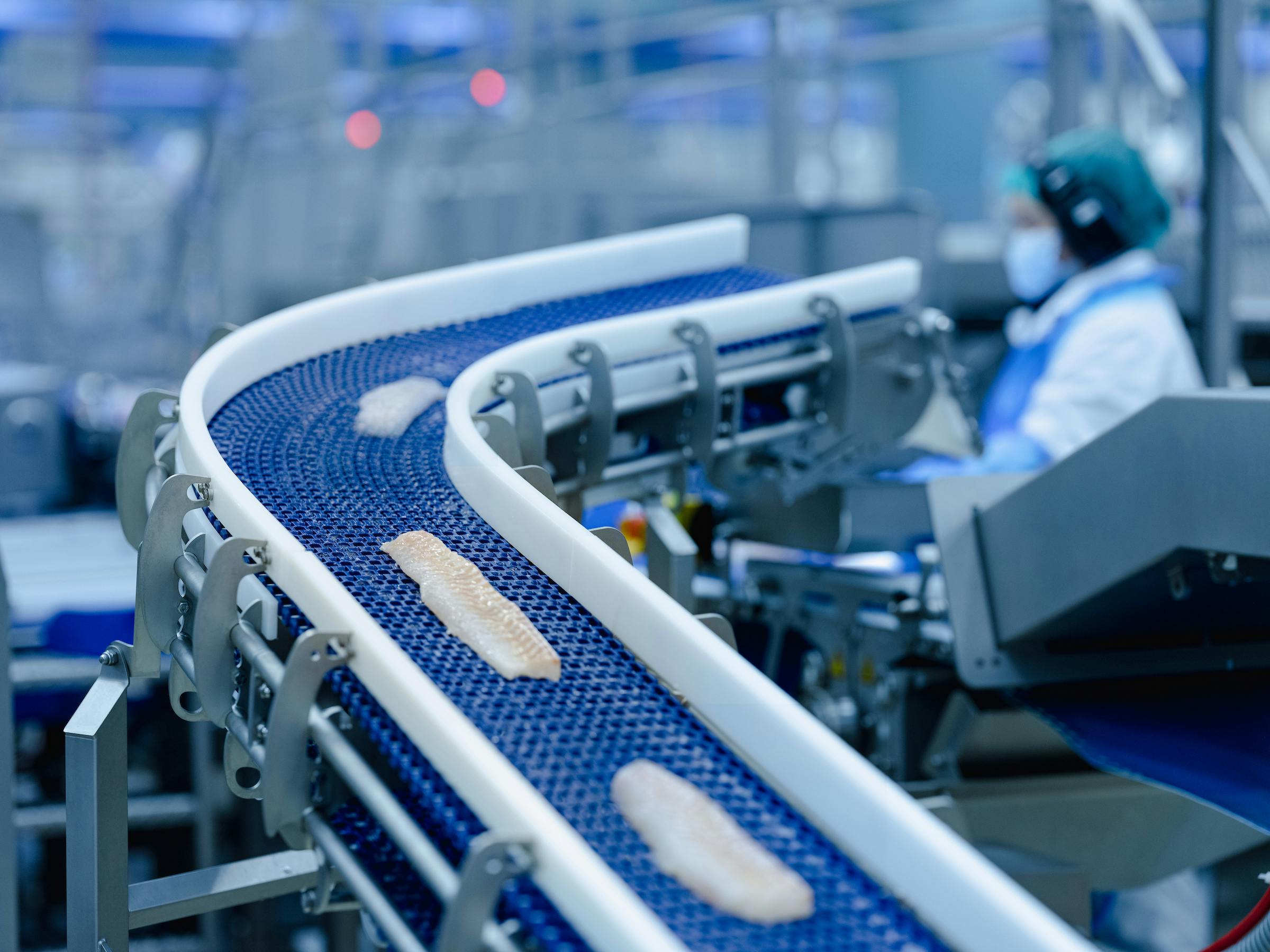
- Brim hf.’s Board of Directors decides to invest in the Greenlandic fishing company Arctic Prime Fisheries ApS (APF) and sells the company a newly built freezer trawler, which is named Ililiveq. The ship is one of the most advanced in the North Atlantic. The ship, built in northern Spain, was designed by Rolls Royce in Norway in collaboration with Brim.
- Brim buys a third of the shares in Iceland Pelagic. The company is a sales company that sells frozen pelagic products in foreign markets, mainly to Eastern Europe and Africa.
- Norðanfiskur, a subsidiary of Brim, is sold to 10 parties, all based in Akranes.
- Agreement reached with Þórsberg ehf. on the sale of all shares in Grábrók ehf., and the sale price is paid with a 24.1% share in Þórsberg ehf.
- Brim buys a 50% share in Guðrún Þorkelsdóttir ehf. which operates the pelagic vessel Guðrún Þorkelsdóttir SU.
- Demersal fish processing in Norðurgarður resumes in August after a three-month halt, durimg which housing was repaired and equipment renewed. In addition to improved utilisation and productivity with new processing lines, water-jet trimming machines, robots, filleting machines, IQF freezers and other processing equipment, energy and water consumption are reduced. Furthermore, staff facilities were significantly improved and difficult jobs in the processing plant were reduced. Reduced forklift traffic around the work area reduces the risk of accidents for employees. With these improvements, the processing plant in Norðurgarður becomes one of the most advanced in the world.
- A third trawl winch is installed in Akurey and Viðey, so that the ships can tow two trawls. As a result, fishing capacity increases and oil consumption decreases per kilogram of catch.
- Brim signed an agreement on Þjóðþrif in collaboration with Pure North Recycling. Under the agreement, Brim undertakes to recycle all plastic generated by the company in Iceland instead of landfilling or recycling abroad.
- Fisheries Iceland’s social policy is signed.
- Breið Developmental is established. Akranes Municipality and Brim have joined forces and established a joint development company for business development and innovation in Breið in Akranes, where Brim owns a lot of land and unused housing.
2021
“Icelandic is an Ocean”, the company becomes a sponsor of the Icelandic Literary Society and donates books to all preschools and primary schools in the country
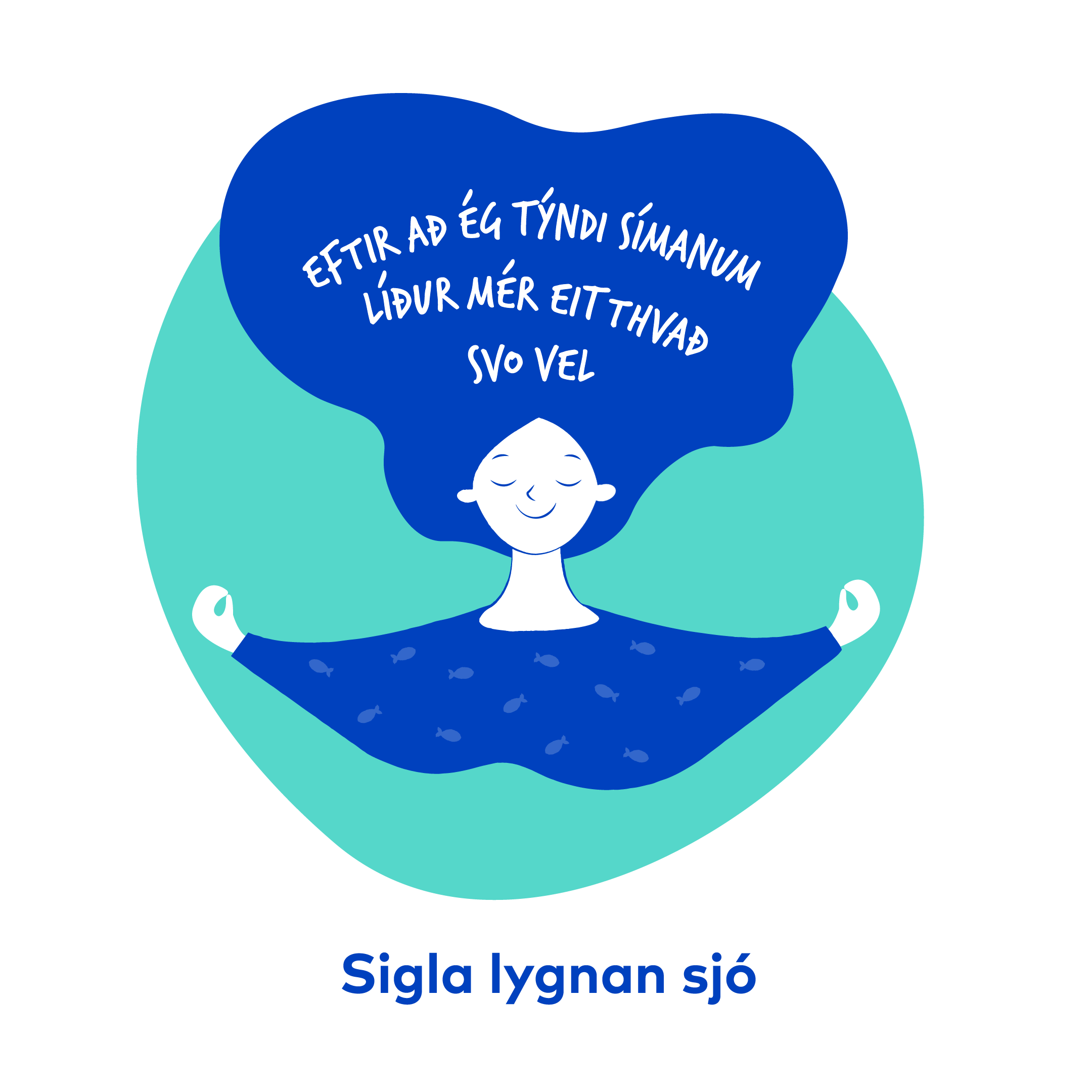
- Capelin fishing and processing begin after a two-year ban on capelin fishing.
- Brim becomes a sponsor of the Icelandic Literary Society for the next four years and will donate ISK 16 million to the Society during that period.
- Brim acquires the pelagic vessel Svanurinn RE 45, formerly named Iivid, from Arctic Prime Fisheries, and the goal is to further strengthen the pelagic section of its operations.
- Brim, in collaboration with Íslandsbanki, issues bonds that fall within the company’s sustainable financing framework and are identified with the colours green and blue. By issuing the bonds, Brim finances projects that promote sustainability and have a positive impact on the environment, with blue bonds regarding projects related to the sea and water. The bonds are the first of their kind to be issued by Brim and also the first in Iceland to fall under the blue and green financing framework.
- Brim gives all preschools and primary schools in the country books from the series “The Little People and the Big Dreams” which is about people who have followed their dreams and convictions and have influenced the world.
- Brim hf. was named Social Media Celebrity of the Year at the Business Festival hosted by the online medium Innherji for its extensive support of sports and youth work, accident prevention and rescue work, cultural work, innovation and education.